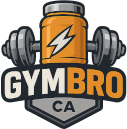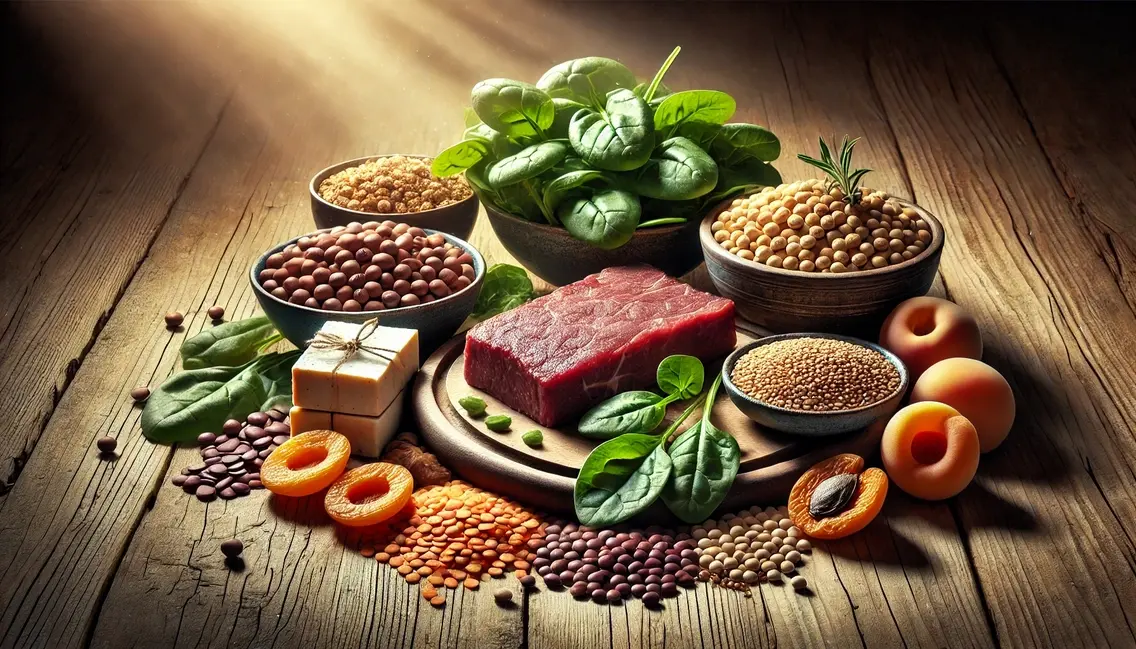The Iron Secret: Ignite Your Energy and Boost Your Health
Imagine a world where endless energy isn't just a cliché, but your reality—what if the key to this vitality was so small, it could be measured in milligrams? Meet iron, the often-overlooked mineral quietly ruling your body's kingdom. Known for its vital role in producing hemoglobin, it’s what ensures oxygen reaches every cell, fueling not just your workouts but your very ability to thrive.
Yet, despite its importance, iron deficiency remains a hidden plague, leaving many unknowingly grappling with fatigue, weakness, and more. Ever wonder why some people seem to have boundless energy while others barely make it through the day? It's time to uncover the truth about iron and how it can transform your life.
In this enlightening article, we explore why iron is not just an essential mineral but an irreplaceable ally in boosting energy and strengthening immune function. From choosing the right iron-rich foods to timing supplements for maximum effect, you won’t want to miss what we’ve discovered. Hungry for more knowledge? Let's dive deeper into the science behind this tiny powerhouse...
Health Benefits of Iron
Iron is an indispensable mineral that underpins several key physiological processes crucial for maintaining health. It plays a central role in oxygen transportation and energy support, making it vital for numerous bodily functions.
Key Health Benefits
- Facilitates Oxygen Transportation
Iron is essential for the production of hemoglobin, the protein within red blood cells that carries oxygen throughout the body. Adequate iron levels are necessary for effective oxygen delivery, crucial for the optimal function of vital organs.
- Supports Energy Metabolism
By being a component in metabolic processes, iron assists in transforming nutrients into energy. It is pivotal for the synthesis of adenosine triphosphate (ATP), the main energy carrier in cells, thereby boosting overall energy levels.
- Enhances Immune Function
Iron significantly contributes to the immune system. Adequate iron levels facilitate the production and function of immune cells, helping the body to fend off infections and maintain a strong immune response.
Including iron-rich foods such as red meat, seafood, beans, and dark leafy greens can help maintain an optimal iron intake. For those with specific iron needs or dietary restrictions, supplements can be a valuable addition. Many people find relief with supplements like Jamieson's Gentle Iron Ultra Strength 150 mg capsules, designed to be gentle on your stomach while effectively combating iron deficiency. Optimizing your iron intake can significantly enhance your energy levels and overall well-being.
Dietary Sources of Iron
Understanding the natural sources of iron is essential for maintaining optimal health and preventing deficiencies. Iron plays a key role in producing hemoglobin, energy metabolism, and supporting the immune system. To support these functions, it's important to incorporate a variety of iron-rich foods into your diet.
Natural Sources of Iron
- Red Meat
Red meat, including beef and lamb, is one of the richest sources of heme iron, which is more readily absorbed by the body. Incorporating red meat into your diet can significantly boost your iron intake.
- Seafood
Seafood, particularly shellfish like oysters and clams, provides excellent sources of heme iron. Additionally, fish such as salmon and tuna contribute to iron intake and also offer beneficial omega-3 fatty acids.
- Beans and Lentils
Legumes, including beans and lentils, offer a solid plant-based source of non-heme iron. They are particularly beneficial for vegetarians and can be combined with vitamin C-rich foods to enhance iron absorption.
- Dark Leafy Greens
Leafy greens like spinach, kale, and Swiss chard are good sources of non-heme iron and also supply other essential nutrients such as vitamins A, C, and K, along with fiber.
- Fortified Cereals
Many breakfast cereals are fortified with iron, providing a convenient and often substantial source of this mineral. Choosing cereals with added iron can be an effective approach to meeting dietary needs.
Challenges of Obtaining Enough Iron
While these foods are excellent iron sources, meeting the daily recommended intake solely through diet can be challenging. Factors such as dietary restrictions, absorption inhibitors found in certain foods, and individual nutritional needs often complicate this process. For those facing such challenges, supplements can be a reliable option. Combat iron deficiency with Jamieson's Gentle Iron Ultra Strength 150 mg capsules, designed to be gentle on your stomach, offering a supportive alternative for maintaining adequate iron levels.
Incorporating Iron-Rich Foods
To maintain adequate iron levels, include a diverse range of these iron-rich foods in your meals. Pairing iron sources with vitamin C-rich foods, such as citrus fruits or tomatoes, can further enhance absorption. In the next section, we will explore the daily recommended intake of iron and discuss how these dietary sources can contribute to maintaining healthy iron levels.
Daily Intake for Iron
Iron is an essential mineral pivotal for the production of hemoglobin, the protein in red blood cells responsible for transporting oxygen throughout your body. It also plays a significant role in energy production and maintaining a robust immune system, as noted by the National Institutes of Health.
Recommended Daily Intake
Understanding and adhering to the recommended daily intake of iron is crucial for preventing deficiency and maintaining overall health:
- 1-3 years: 7 mg per day
- 4-8 years: 10 mg per day
- 9-13 years: 8 mg per day
- 14-18 years (male): 11 mg per day
- 14-18 years (female): 15 mg per day
- Adults (male): 8 mg per day
- Adult women (19-50 years): 18 mg per day
- Adult women (51+ years): 8 mg per day
- Pregnant women: 27 mg per day
- Breastfeeding women (under 19 years): 10 mg per day
- Breastfeeding women (19+ years): 9 mg per day
Meeting Your Daily Iron Needs
Consistently meeting these intake levels is essential for maintaining optimal health and energy levels. Incorporating iron-rich foods such as red meat, seafood, beans, and dark leafy greens into your diet is a practical approach. Additionally, consuming vitamin C-rich foods alongside these can enhance iron absorption. For those concerned about meeting their daily iron needs, consider Jamieson's Gentle Iron Ultra Strength 150 mg capsules, formulated to be gentle on your stomach while effectively combating iron deficiency.
Having a consistent intake of this vital nutrient is key to supporting everyday bodily functions and preventing the fatigue and weakness that often accompanies iron deficiency. Next, we will explore the symptoms of iron deficiency and strategies for its prevention and management.
Deficiency of Iron
Iron deficiency remains the most prevalent nutritional disorder worldwide, posing serious health risks if left unaddressed. This concern is amplified because iron is indispensable for numerous bodily functions, primarily oxygen transport and energy metabolism.
Deficiency Symptoms and Consequences
- Fatigue and Weakness
Critical for hemoglobin production, iron ensures oxygen reaches your tissues efficiently. A deficiency could lead to chronic fatigue and muscle weakness, hampering your daily activities and overall well-being.
- Pale Skin
Low hemoglobin levels due to iron deficiency may cause pallor, particularly noticeable on the skin and the inner lining of the eyes, indicating a reduction in red blood cell production.
- Shortness of Breath
During physical exertion, insufficient oxygen from low iron can result in shortness of breath as your body strains to meet its oxygen needs.
- Dizziness and Headaches
Decreased brain oxygen supply due to insufficient iron can lead to dizziness, lightheadedness, and persistent headaches, disrupting your focus and productivity.
- Weakened Immune System
Iron is crucial for immune cell development. A deficiency can impair immune responses, making you more susceptible to infections and prolonging recovery times.
Preventing Iron Deficiency
Avoiding the repercussions of iron deficiency starts with a diet rich in iron-containing foods like red meat, seafood, and leafy greens. Enhancing non-heme iron absorption with vitamin C enriched foods can further boost iron levels. For those who find dietary intake alone insufficient, Combat iron deficiency with Jamieson's Gentle Iron Ultra Strength 150 mg capsules, designed to be gentle on your stomach!
Promptly addressing iron deficiency is crucial to prevent its escalation and associated health issues. Now, let’s explore common misconceptions and practical concerns regarding iron deficiency in our upcoming FAQ section.
Conclusion
Iron isn't just a mineral; it's a vital key to unlocking boundless energy and robust health. By understanding its transformative power, you can take decisive action towards revitalizing your life. From the foods you choose to the supplements you consider, every decision can elevate your wellbeing. So, as you stand at the crossroads of knowledge and action, ask yourself: What changes will you make today to ensure you're harnessing the full power of iron?
Perhaps you'll start with the simple inclusion of iron-rich foods in your meals, or maybe you’ll opt for iron supplements to bridge the gap. The right choice is the one that aligns with your body's unique needs—a choice informed by understanding and proactive care. Reach out within your community of friends, family, and gym partners. Share this newfound wisdom and open a dialogue about the often-overlooked marvels of iron.
Remember, your journey to better health and more energy begins with a single step—share your thoughts, discuss your strategy, and invite others to join you. Only then can good health become a shared adventure, a collective pursuit where we all rise together. What will your next step be? Your energetic future is just waiting to be claimed.

